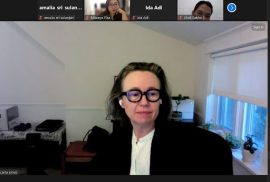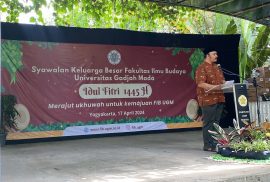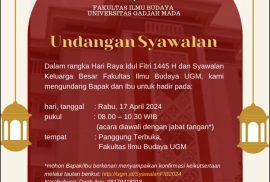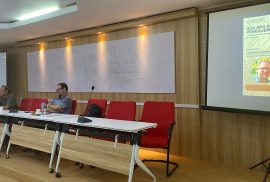SDGs 4: Quality Education | SDGs 4: Cultural diversity | SDGs 4: Education | SDGs 8: Culture | SDGs 9: Access to the internet | SDGs 11: Cultural heritage | SDG 16: Peace justice and strong institutions | SDGs 16: Accountable institutions | SDGs 16: Education | SDGs 17: Partnerships for the Goals | SDGs 17: Global partnership
SDGs 8: Culture
SDG 16: Peace, justice and strong institution | SDGs 8: Culture | SDGs 4: Equal access : SDGs 2 : Food | SDGs 1: Non-discrimination
In the framework of Eid al-Fitr 1445 H coupled with Syawalan, the Big Family of the Faculty of Cultural Sciences UGM consisting of lecturers, staff, part-timer, full-timer, and students of FIB attended the Syawalan event which was held on Wednesday, April 17, 2024 at the Open Stage of the Faculty of Cultural Sciences UGM. Starting from 08.00 until 10.30, this event began with a session of shaking hands and forgiveness by marching around the Margono building courtyard right after the registration desk at the south entrance of FIB. The atmosphere was warmly decorated with smiles from every invited guest who greeted each other. This agenda was very much in line with the theme of the event, namely Merajut Ukhuwah untuk Kemajuan FIB UGM.
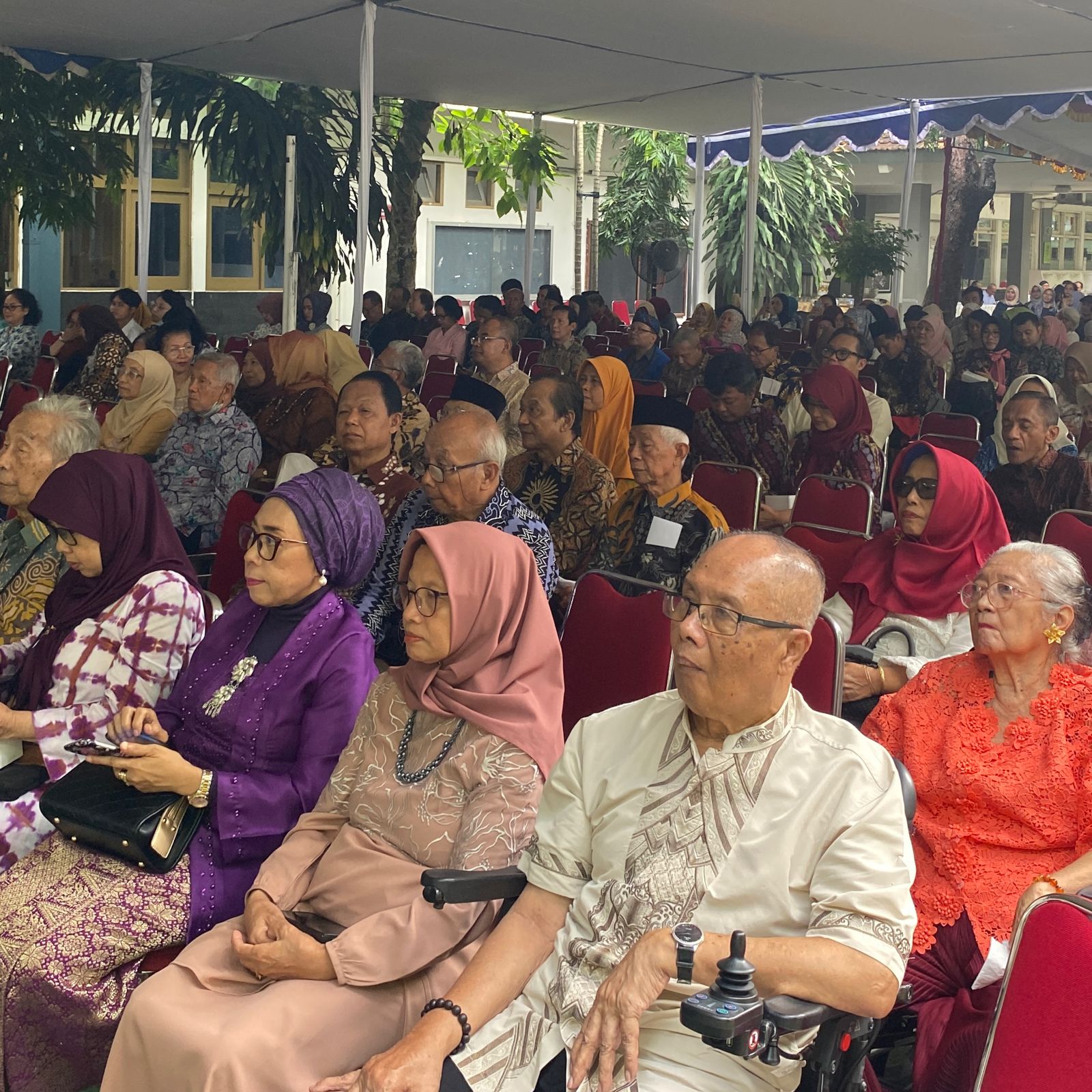
In connection with the theme, the Dean of the Faculty of Cultural Sciences expressed his hope in his opening speech that in the future the FIB family would synergize well with each other to achieve other extraordinary achievements, considering that FIB had just received a major achievement where 4 of its departments entered the 200 world rankings and specifically Anthropology entered the world’s top 51 along with other anthropology study programs from world-renowned campuses. “Actually, we do not expect any awards, but thanks to the cooperation that we have built well to give the best so far, it has resulted in something to be proud of in the eyes of the world. Hopefully we can help each other maintain our achievements. Thank you to the seniors or predecessors who have worked together to build FIB, thank you to all who are currently trying, and hopefully our next generation can give their best to be able to continue and further advance FIB in the future,” said Prof. Dr. Setiadi, S.Sos., M.Si.
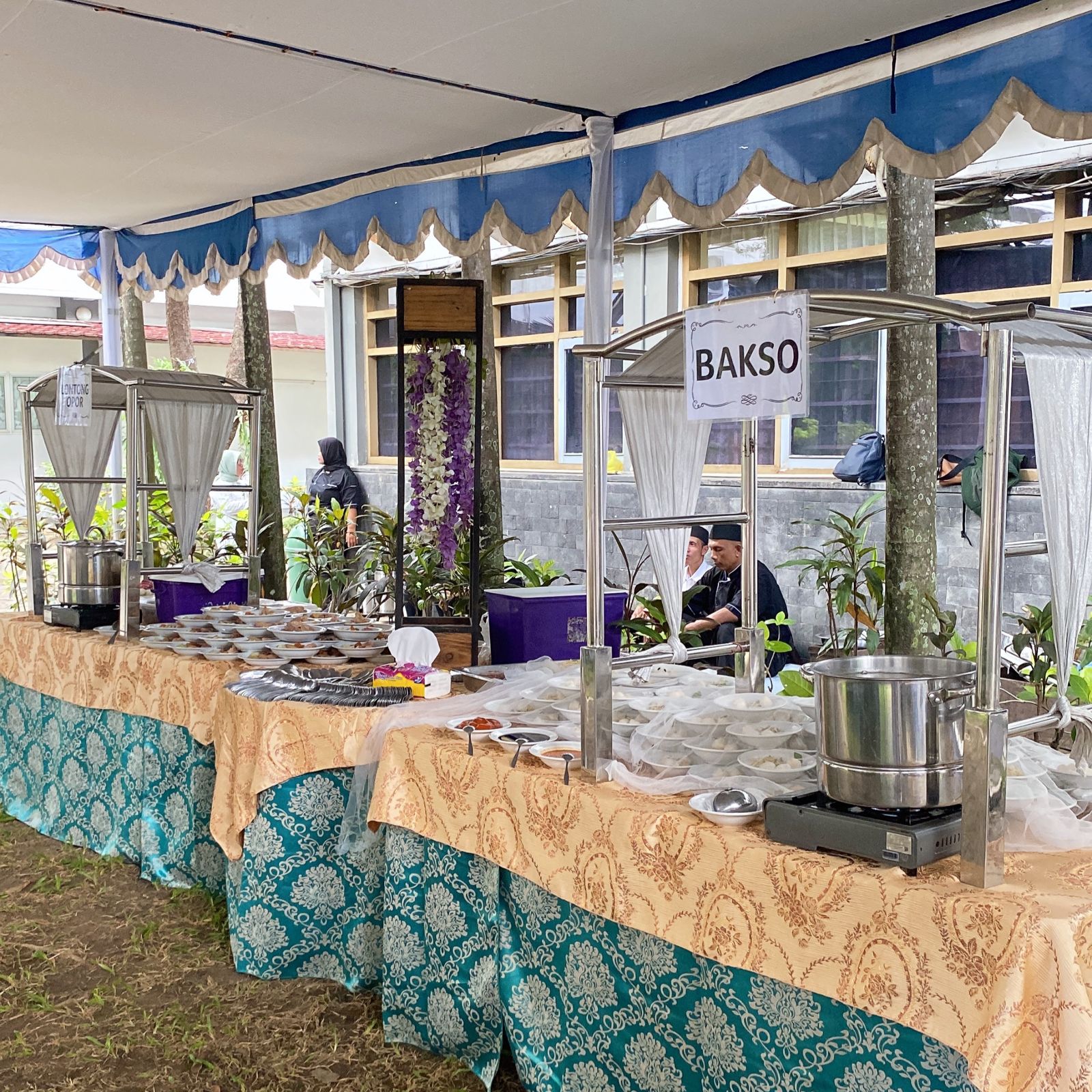
There were several other event agendas such as recitation of tilawah and sari tilawah, introduction of new lecturers and staff, a speech on the theme of syawalan wisdom presented by, Dr. Rudy Wiratama, S.I.P., M.A., and a prayer by Hamdan, M.A.. The event was also made lively by the distribution of various door prizes ranging from pots, stoves, sarongs, rice cookers, and many other interesting prizes. The event was closed by the MC by inviting invited guests to enjoy the lunch that had been provided. The dishes prepared include meatballs, lontong opor, young coconut ice, soup, and snacks that are delicious especially coupled with the togetherness created during the eating session together. It is hoped that with this event, the kinship within the Faculty of Cultural Sciences Universitas Gadjah Mada will become stronger and avoid conflict so that it can bring FIB forward together.
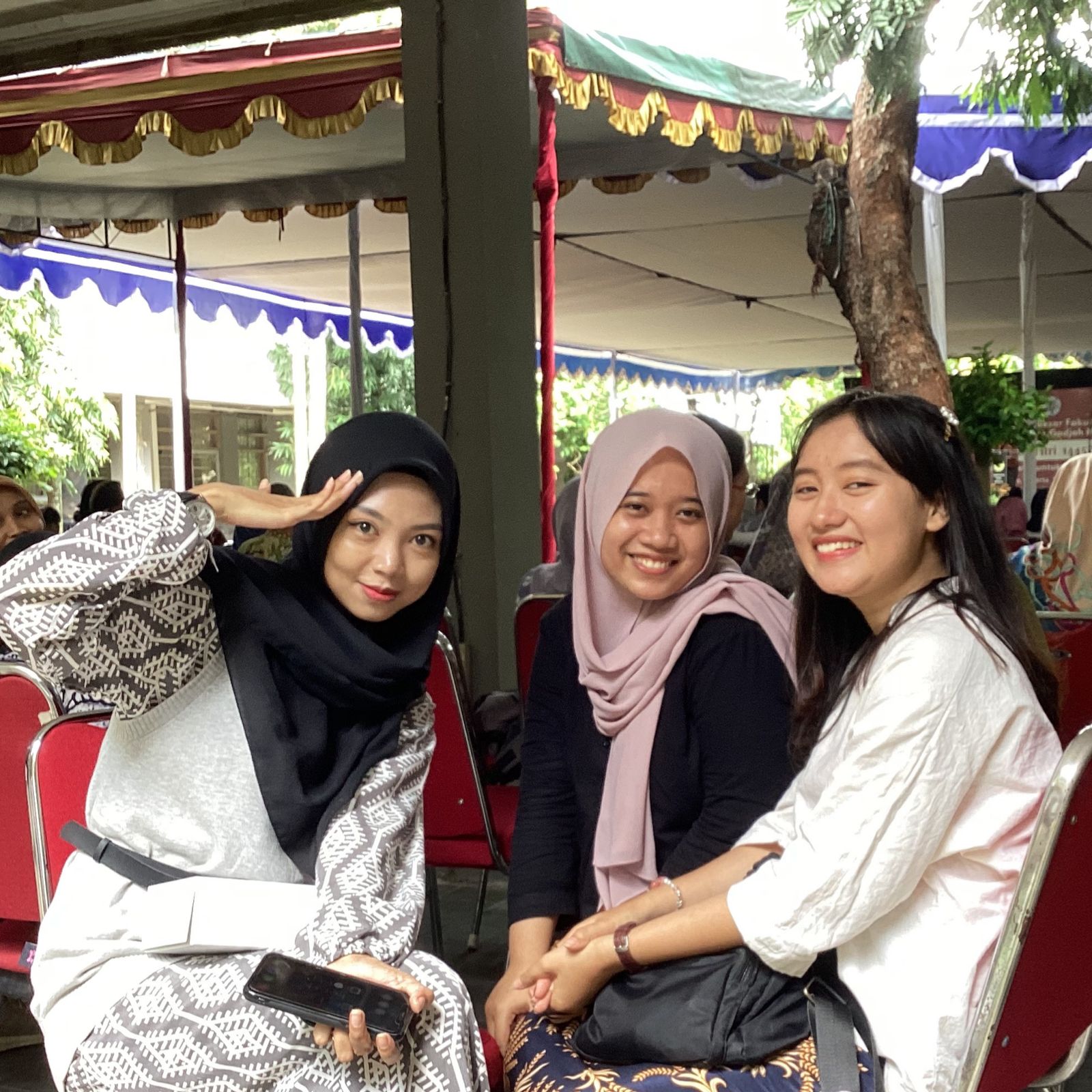
SDG 16: Peace, justice and strong institution | SDGs 8: Culture | SDGs 4: Equal access : SDGs 2: Food | SDGs 1: Non-discrimination
Following up on the Syawalan Preparation of the Faculty of Cultural Sciences UGM which will be held tomorrow, the committee held an online meeting today (Tuesday, 16/04/2024) at 1 pm. Mrs. Erika as the event coordinator led the meeting, opened it, and expressed her hope that tomorrow’s event would run smoothly. It is hoped that the committee will be present before the audience comes to the location. Furthermore, she invited each division to convey the progress they have made. Beginning with Mrs. Ani Jayanti who explained the systematic plan report Among Guests on the day of the event as well as the location of the attendance table. Turning to the MC, the Coordinator hopes that the MC on duty, namely Ms. Diyah and Mr. Rahmat, will direct the audience from 8.45 to take their places because the event starts at 9, coordinate with the performers to find out what will be displayed such as the surah that will be recited during the recitation and the material that will be presented by the speaker, recheck the event schedule to find out the complete sequence of events, and collect the personal data of new lecturers and staff to be introduced later.
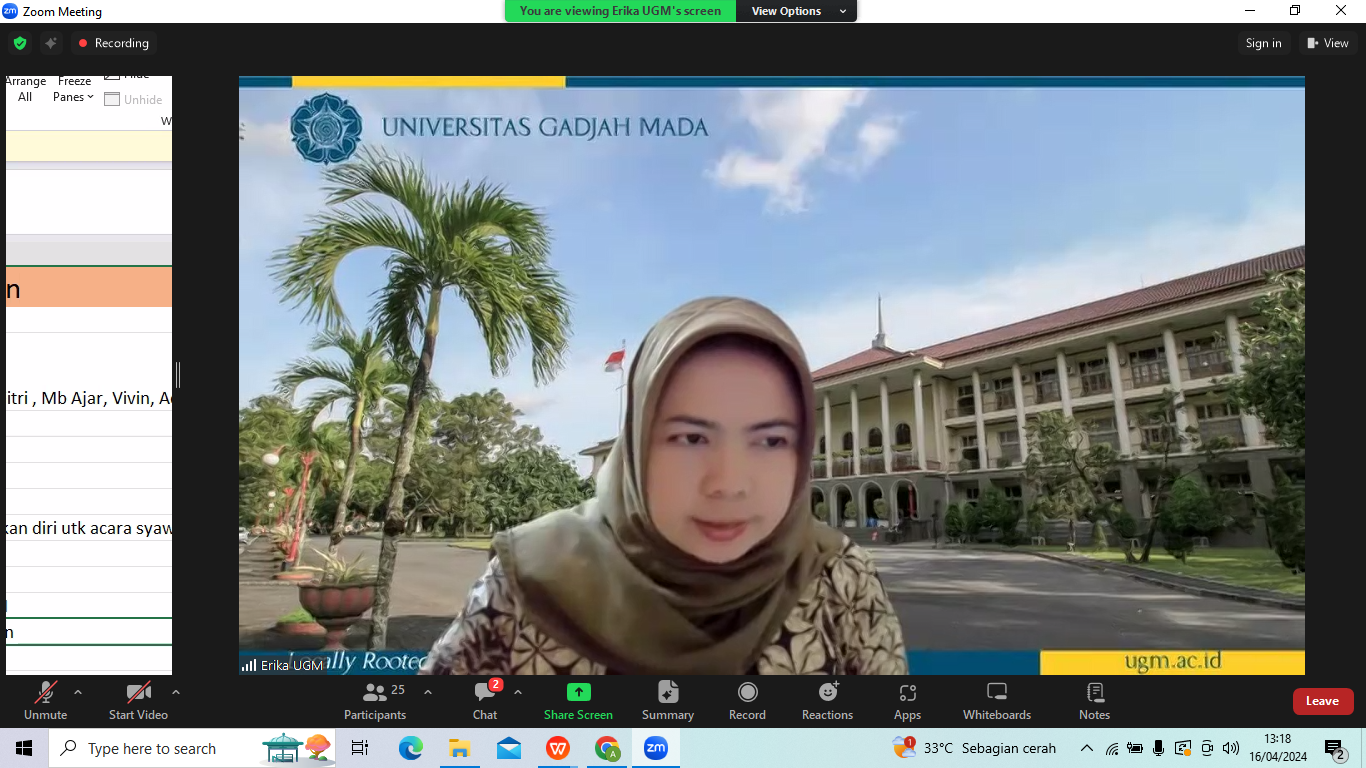
The equipment section explained what is already available and just needs to be arranged tomorrow morning, such as tents, tables, chairs, which have been on location since today. They have also prepared additional equipment in case of an obstacle such as preparing a generator for the possibility of a blackout. The consumption section explained the distribution of consumption and its location. The documentation section is entrusted to the public relations team to take pictures or videos and then upload them to various FIB social media. So, it is expected to this team to prepare the camera well and stand by from the morning also with the committee. Finally, an additional discussion session was opened to discuss the dress code and dessert. The closing message at the meeting was that the Coordinator again asked for help to attend early, emphasized to be on duty according to the responsibilities of their respective fields, especially the field to immediately check the preparation after finishing the meeting what was needed at this time.
SDG 8: Decent work and economic growth | SDGs 8: Culture | SDG 11: Sustainable cities and communities | SDGs 11: Adaptation | SDG 17: Partnerships for goals | SDGs 17: Fostering for innovation
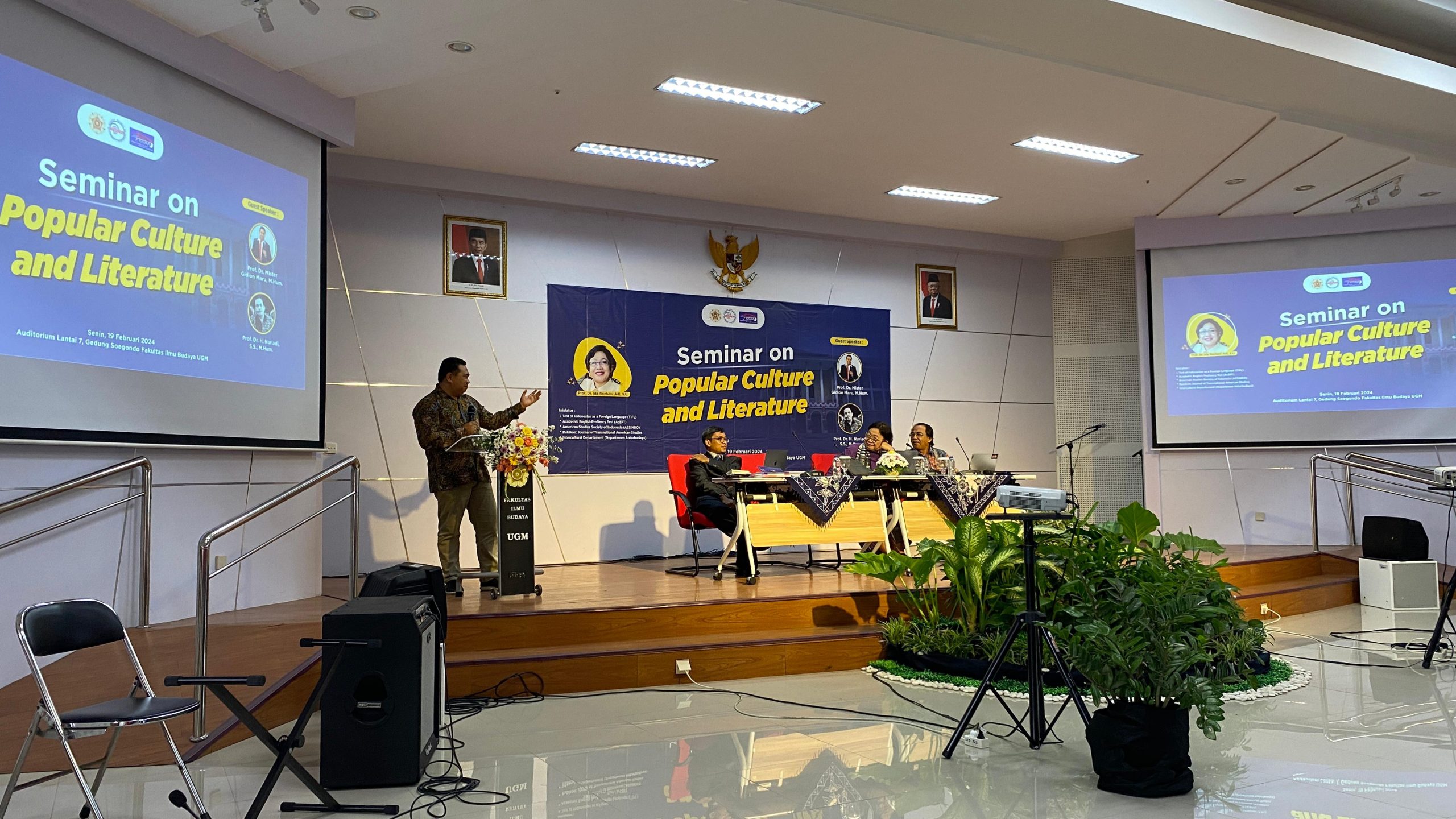
In one of series of retirement period events for Prof. Dr. Ida Rochani Adi, S.U. which was held on Monday, February 19th 2024 in the Soegondo Building Auditorium, Faculty of Cultural Sciences, Gadjah Mada University, Seminar on Popular Culture and Literature was the main event led by the moderator, namely Dr. Herman Felani, M.A. with Prof. Ida acted directly as Keynote Speaker. Meanwhile, the presenters were two professors who were experts in this field. The two presenters were Prof. Mister Gideon Maru as the first presenter and Prof. Nuriadi as the second presenter. The two experts discussed the social community’s views on popular cultural and literary phenomena.
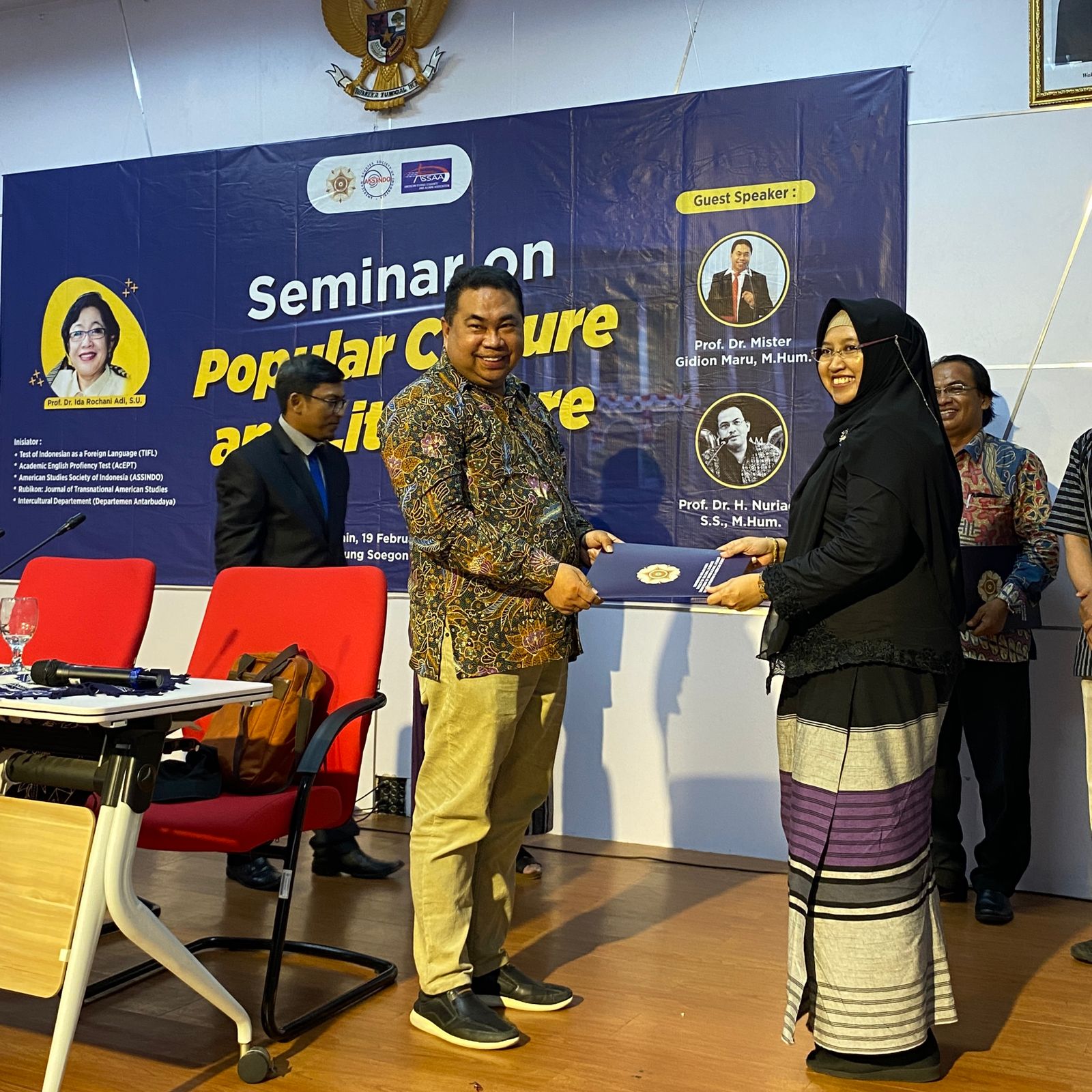
According to the speaker at the seminar, literature is always synonymous with “fiction”, “the product of imagination”, “imagination” and “the result of inventions” created by the author. This view is not completely wrong but tends to inferiorize literature as a creative work and science in the social sciences and humanities. Literature is an expression of feelings, thoughts, views on life, life character principles, and a writer’s ideal vision of life. Therefore, literature takes the form of FICTION (novels, short stories, folk tales, legends, etc.), but also NONFICTION (letters, essays, speeches, biographies, autobiographies, etc.). The extraordinary discussion closed with comments from Prof. Ida, then continued with giving souvenirs to the moderator and presenter as well as taking a group photo.
SDG 4: Quality education | SDGs 4: Education | SDG 8: Decent work and economic growth | SDGs 8: Culture | SDG 11: Sustainable cities and communities | SDGs 11: Adaptable | SDG 16: Peace, justice, and strong institutions | SDGs 16: Education | SDG 17: Partnerships for the goals | SDGs 17: Fostering Innovation
The title of this Public Lecture succeeded in attracting the attention of students from the Faculty of Cultural Sciences, Gadjah Mada University who were interested in concentrating on translation to attend the Multimedia Room on the 2nd floor of the Margono Building on Tuesday 20th of February 2024. Students from various levels and classes as well as lecturers filled the room from 9 am to gain new knowledge about translation from extraordinary sources in their field. The resource person is the Head of Pacific and Asian Students from the University of Victoria (British Columbia, Canada). Before presenting his material, he expressed his deepest gratitude to the Faculty of Cultural Sciences for supporting his research and to the students who were willing to take the time to attend the general lecture.
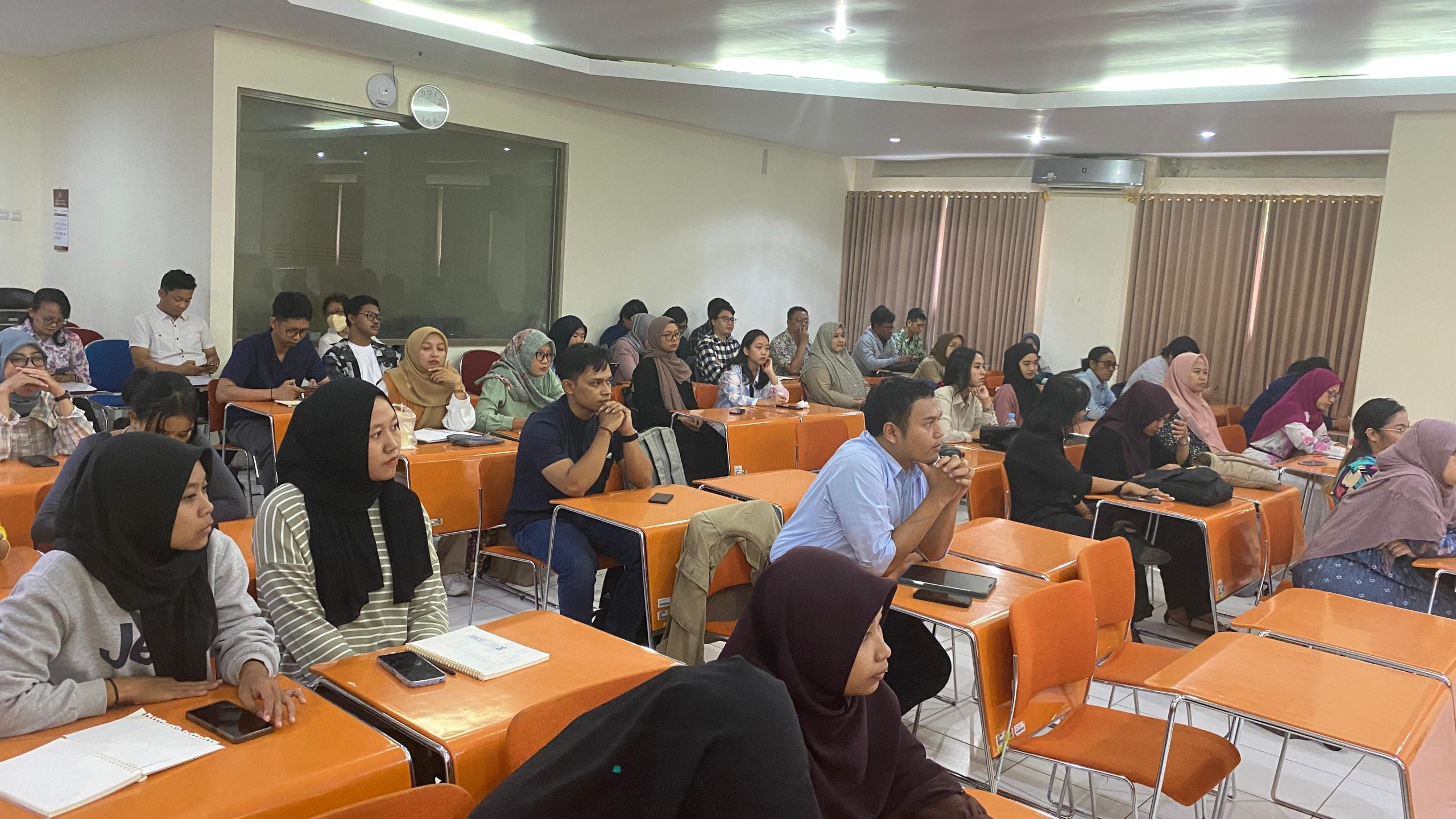
The material opened by explaining the meaning of translation so that public lecture participants knew the basic knowledge first before discussing translation and its problems in more depth. The use of differentiation in each concept of religion and atma was one of the problems in translation where there might be a language transformation adapted from the old concept to the new constitution. On the issue of religion and atma, there were a number of terms and other languages that were trapped in language transformation efforts. The presenter delivered the material in a way that was easy to understand, namely by relating it to examples found in everyday life based on the presenter’s personal experience. From the presentation given, he concluded that the use of linguistics, especially in the field of translation, could not be separated from concepts in everyday life.
Prof. Dr. Faruk HT., moderator at this public lecture, closed by providing a simpler conclusion that there were three important points that could be noted. First, translation as a crossing of meaning. This does not only apply to interlanguage translations but also between languages, for example between one group and another. Second, the concept of metaphor is conveying something with another meaning. This meaning can also be reversed, that is, conveying the meaning with a different name or sign. Third, meaning is a fluid process that can change from one place to another, from one case to another, such as in the case of religion and atma. Finally, the question and answer session was led by a different moderator, namely Dr. Arsanti Wulandari, M. Hum.

